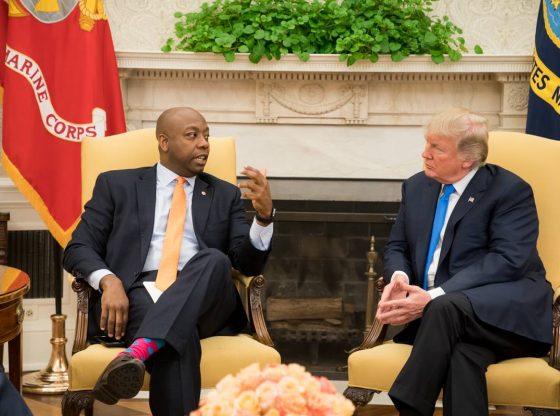South Carolina’s Tim Scott introduced election integrity legislation calling for a thorough investigation into the irregularities surrounding the 2020 presidential election. Claims of widespread fraud have echoed through the country since November, an investigation will help restore faith in our election process. The proposed commission would be required to produce multiple reports which include recommendations to prevent fraud in the future as well as how to hold secure elections during a pandemic.
Townhall reports:
“The beauty of the American experiment is the ability to freely question our processes and build upon lessons learned. We cannot move forward without looking back and scrutinizing the issues that led to millions of Americans losing trust in our election system. While every election has a modicum of fraud, the circumstances around the pandemic led multiple states to make rushed and perhaps ill-planned changes to their election systems weeks ahead of the presidential election. Simply put, Congress needs to act in a bipartisan fashion to examine the missteps—intentional or not—made this year in state legislatures across the country,” Scott released in a statement late Tuesday.
“My bill will establish an Election Integrity Commission that would study the merits and administration of the November 2020 election and make recommendations to State legislatures to improve the security, integrity, and administration of federal elections. It is absolutely critical that every American has faith in our electoral system and that their vote is counted. As President Reagan said, ‘Freedom is never more than a generation away from extinction,’ and now more than ever before is it our duty to regain the trust of the American voter,” he continued.
According to Scott’s office, the Commission would be made up of 18 members, half appointed by Senate Majority Leader Mitch McConnell (should Republicans win at least one Georgia runoff race) and the other half by House Speaker Nancy Pelosi.They would investigate the following:
-The effects of the COVID–19 pandemic on the election;
-The election practices adopted in response to the COVID–19 pandemic;
-Practices regarding mail-in ballots, absentee ballots, and vote-by-mail procedures;
-Practices that would have allowed improper or fraudulent voter registration or votes;
-The scope of any improper or fraudulent voter registration or votes;
-Practices that would bolster public confidence in the integrity of future general elections.
Democrat Jonathan Turley is calling for a federal election commission to investigate the irregularities of the 2020 election cycle to help restore integrity in the election process. Much of Tim Scott’s legislation would address Turley’s concerns.
Townhall reports on Turley’s push for a federal commission.
I hate federal commissions. I have always hated federal commissions. Federal commissions are Washington’s way of managing scandals. They work like placebos for political fevers, convincing voters that answers and change are on the way. That is why it is so difficult for me to utter these words: We need a federal election commission. Not the one proposed by some Senate Republicans. And not like past placebo commissions. An honest-to-God, no-holds-barred federal commission to look into the 2020 presidential election.
With the challenge to the certification of election votes, some Republican members of Congress are calling to delay the proceedings for 10 days and impanel a commission to “audit” the results. There is precedent for such a commission. Just not good precedent. Indeed, citing the Electoral Commission of 1877 as a model of good constitutional process is like citing the Titanic as a model of good maritime navigation. The commission was an utter disaster.
Roughly 40% of that electorate have lingering doubts about whether their votes actually matter. Most of the cases challenging the election were not decided on the merits. Indeed, it seems they haven’t even been allowed for discovery. Instead, they were largely dismissed on jurisdictional or standing groups or under the “laches” doctrine that they were brought too late. Those allegations need to be conclusively proven or disproven in the interests of the country.











